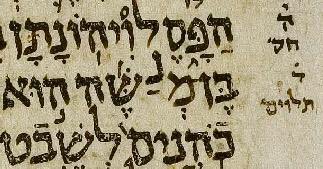Of course, Ruth is set in the time of Judges.
It begins, ‘In the days when the judges judged...’
But the connections go deeper...
But surviving mediaeval Hebrew manuscripts place Ruth with Ecclesiastes, Song of Songs, Lamentations & Esther in the 5 Megilloth (scrolls).
Arguably they’re getting progressively worse.
Then there are 2 ‘appendix’ stories:
Chs 17-18 Danites’ idolatry-violence
Chs 19-21 Benjaminites’ sex-violence
Both have Levites & Bethlehem (17:7; 19:1) & the hill country of Ephraim (17:1; 19:1).
Both trace the fate of 600 men from a dwindling tribe: Dan (18:11); Benjamin (20:47).
Like them it involves Bethlehem.
It also links with Ephraim & Levites through the word Ephrathi (אפרתי Ruth 1:2), which seems to cover both geographical Ephraim & Levite descent (1 Sam 1:1; 1 Chron 6:33).
Judges 19-21 focus on the violence of Gibeah, the town of SAUL.
Ruth focuses on great events in Bethlehem, the town of DAVID.
Judges 19-21 ends trying to deal with a curse (21:18).
Ruth contains the theme word ‘bless’ (2:4, 19, 20; 3:10; 4:14).
Judges 19-21 is about *Benjaminites* committing sexual violence.
Ruth is about a *Moabitess* leaving idolatry (1:16) & showing faithfulness, resulting in a beautiful fruitful marriage, leading genealogically to king David.
The Benjaminites’ violence is set in the 3rd generation from Moses:
‘and Phinehas the son of Eleazar, son of Aaron, ministered before it [the ark] in those days’ (20:28).
‘And the people of Dan set up the carved image for themselves, and Jonathan the son of Gershom, son of Moses, and his sons were priests to the tribe of the Danites...’ (18:30).
Manasseh is spelled M N Š H (מנשה)
Hebrew manuscripts mix these two forms by raising the N (נ) above the line.
Numbers 1:7 tells us that Nahshon was the leader of the tribe of Judah at the beginning of the time in the wilderness.
Ruth leads us to its last word, which is the name of a king: David.
It can be profitably read:
1. As an independent book
2. As one of the 5 Megilloth
3. As a happy ending to the often depressing book of Judges
‘No Ammonite or Moabite may enter the assembly of the LORD. Even to the tenth generation, none of them may enter the assembly of the LORD, because they did not meet you with bread and with water on the way...’ (Deut 23:3-4)
The narratives show reversal: Danites & Benjaminites under judgement within 3 generations of the giving of the law.
Meanwhile a Moabite by grace is included in the royal line b/c there is (borrowing from #CSLewis) a ‘deeper magic’
‘where sin increased [Judges, esp. 17-21], grace abounded all the more [Ruth]’ (Romans 5:20).
Despite human sin, Ruth shows us that God was working on a greater good through the line of David.
END
Please RT








